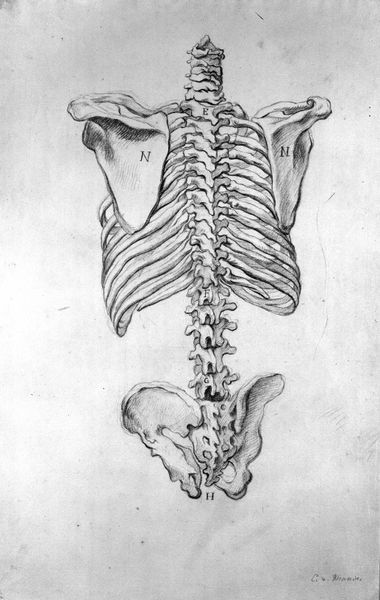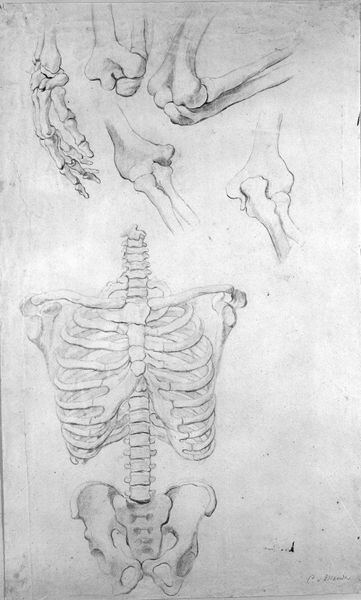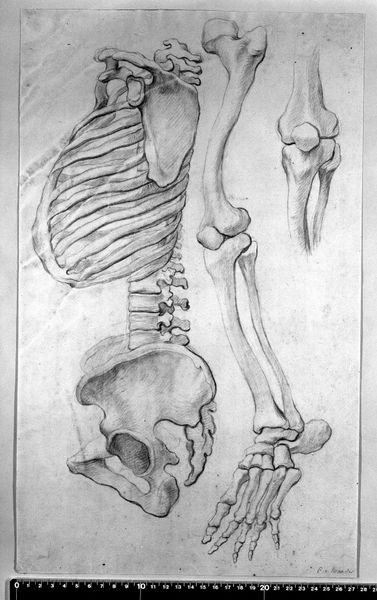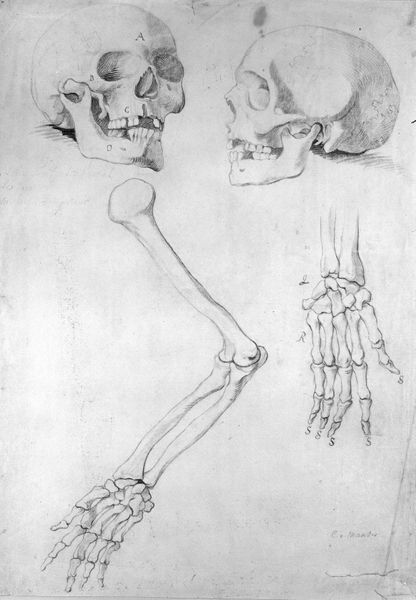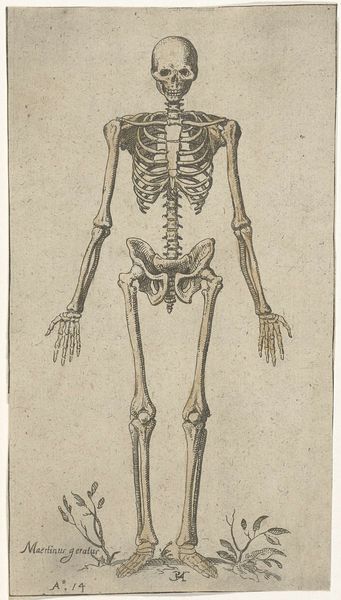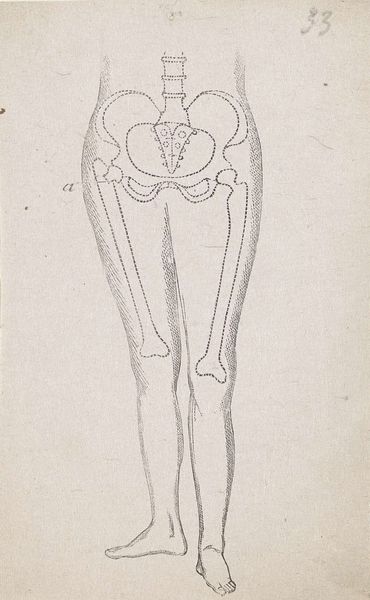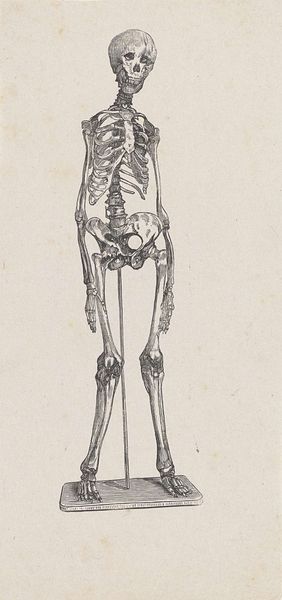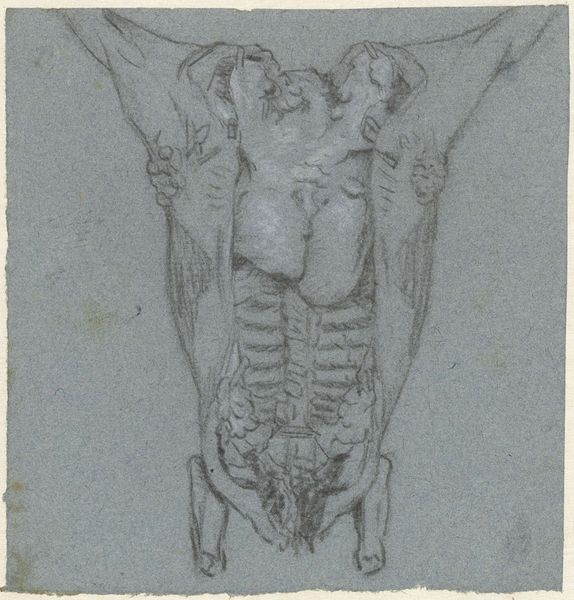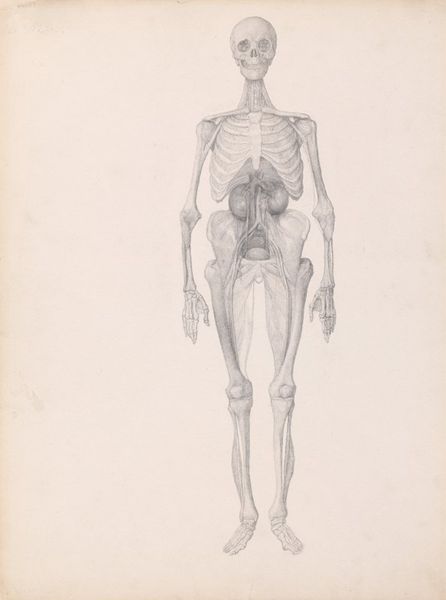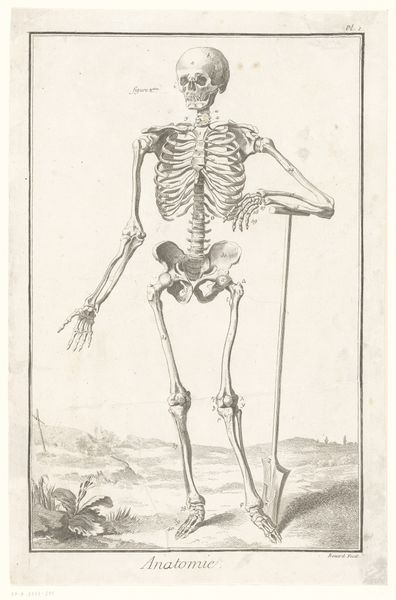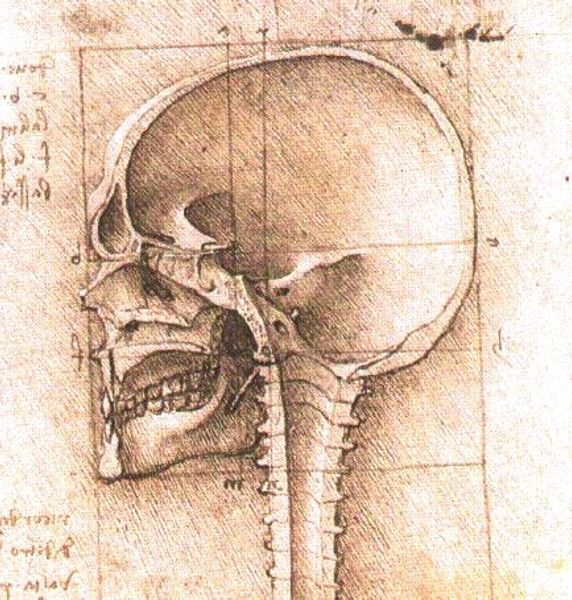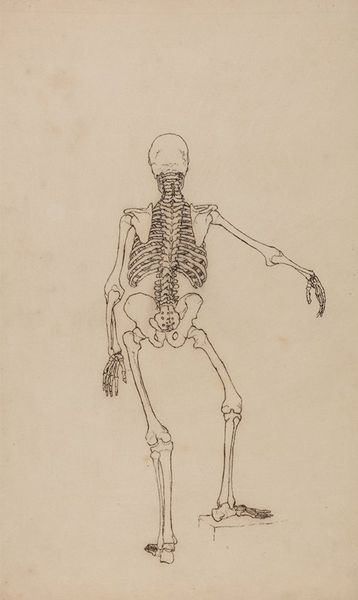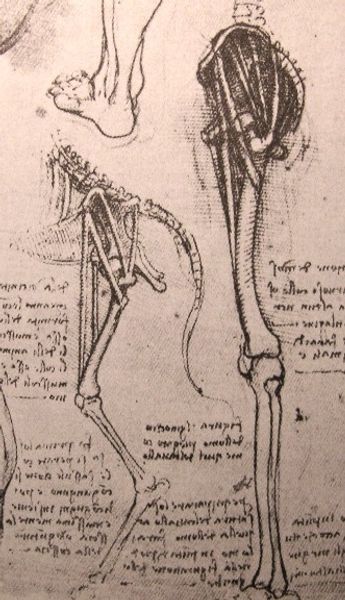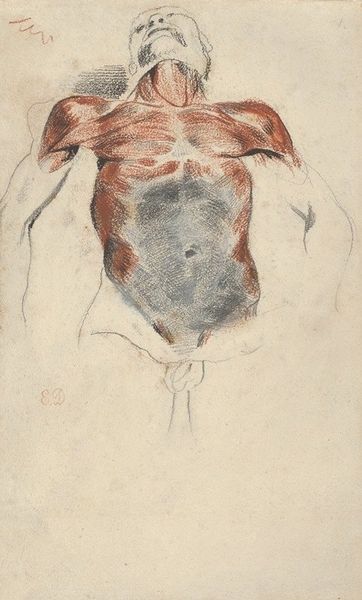
Rygrad med brystkasse og bækken, set forfra. 1660 - 1663
0:00
0:00
drawing, dry-media, pencil
#
pencil drawn
#
drawing
#
pencil sketch
#
figuration
#
dry-media
#
pencil
#
pencil work
#
history-painting
#
academic-art
#
realism
Dimensions: 446 mm (height) x 271 mm (width) (bladmaal)
Karel van Mander III made this drawing of a torso in pen and ink. In the 17th century, the study of anatomy gained importance not just for medical science, but also in the training of artists. This image is far from a neutral record of human anatomy. It was made in the Netherlands at a time when the Dutch Republic was expanding its influence through trade and colonization. This expansion went hand in hand with scientific exploration, including the study of the human body. Images like this one allowed artists to better represent the human form, but also served as reminders of the power of human intellect. The drawing is an example of how art and science were intertwined in the Dutch Golden Age. It is important for us as historians to understand the role that institutions such as the medical school and the artist's studio played in the production and circulation of such images.
Comments
No comments
Be the first to comment and join the conversation on the ultimate creative platform.
